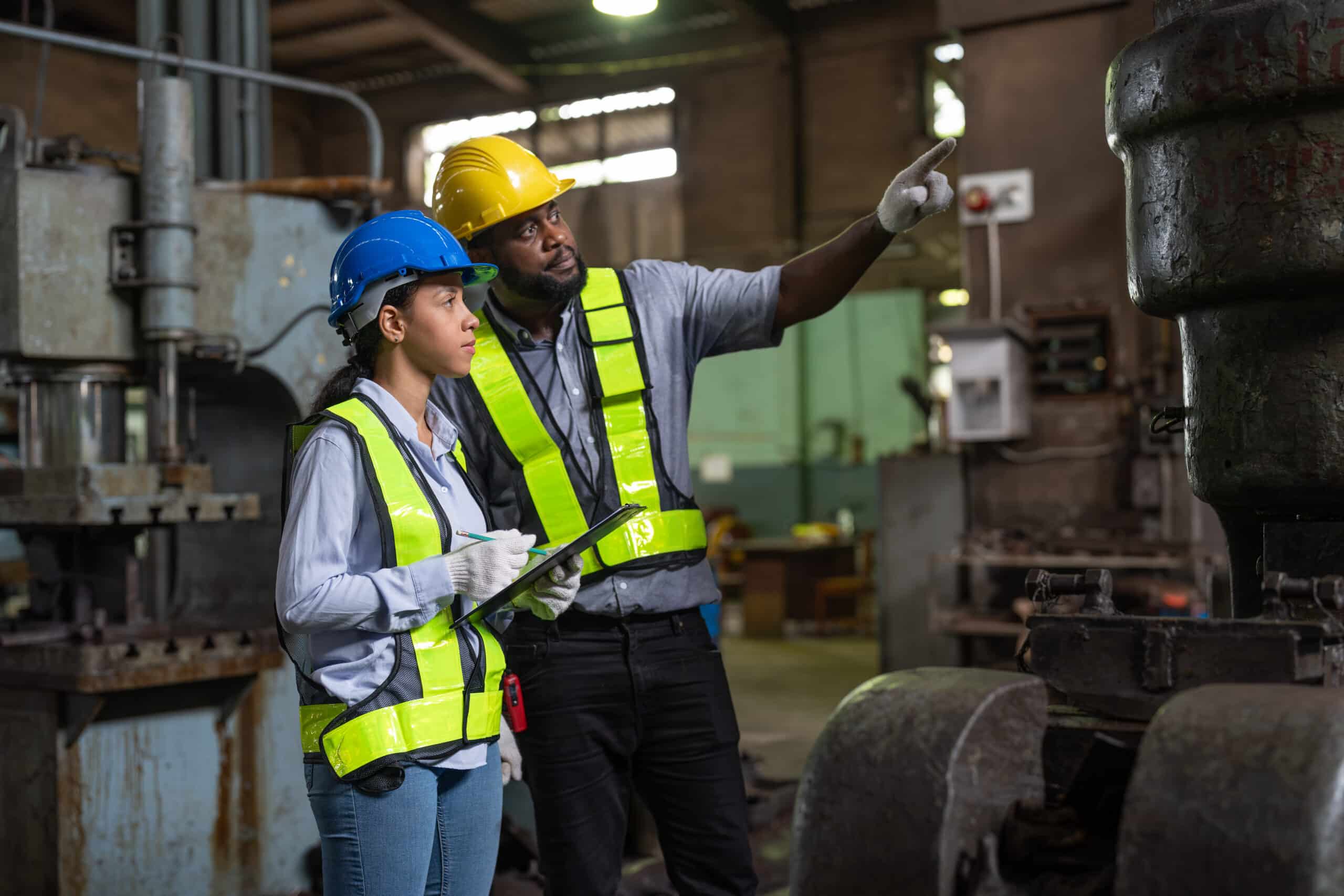April 2, 2024 7 min read

5 Essential Building Maintenance Training Topics for Facility Managers
Industry:
Solution:

Building maintenance is a critical aspect of facility management, requiring expertise and continuous training to ensure optimal performance and safety. In this blog, we’ll explore five essential building maintenance training topics that every facility manager should prioritize to effectively maintain building integrity, enhance occupant safety, and preserve property value.
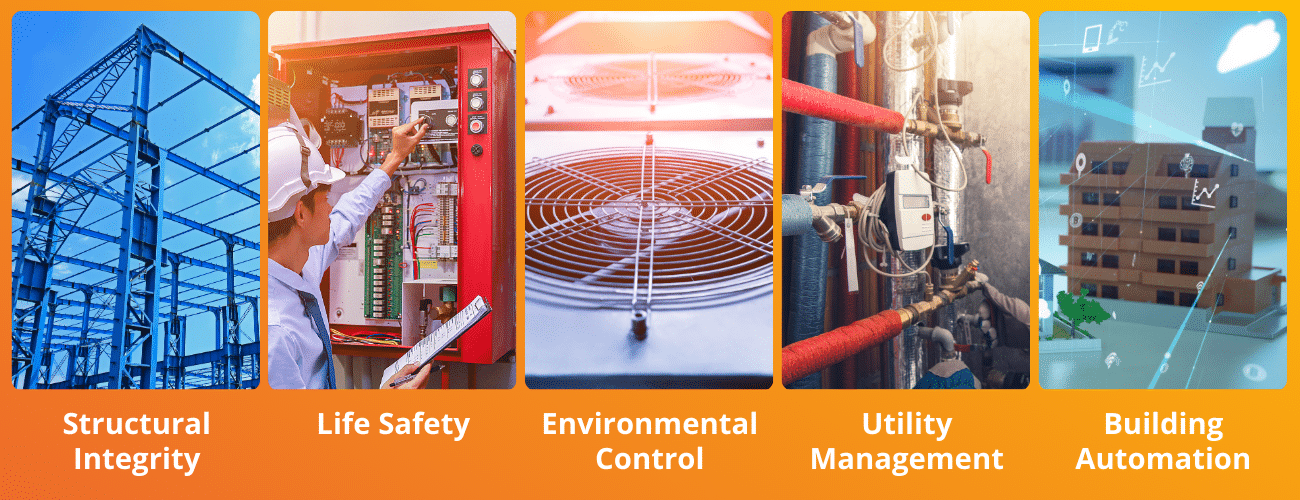
Building Maintenance Training Topics
There are numerous skills that you must train maintenance technicians on. In this blog, we’re going to focus on five key categories:
- Structural Integrity Training
- Life Safety Training
- Environmental Control Training
- Utility Management Training
- Building Automation Training
If you want to learn more about the types of training facilities maintenance techs need, and how to create curated learning plans, download a copy of our free learning path template ⬇️
A Training Plan Template for Facilities Maintenance Techs
Provide a quick and efficient way to assess and assign courses that align with your organization’s and FM employees’ learning goals and career pathways
Download Template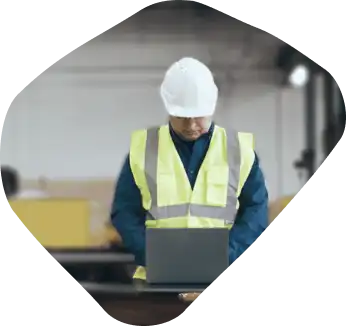
1. Structural Integrity Training
Building maintenance training is essential for facility managers to uphold the structural integrity of their buildings. By undergoing training in structural assessments, roofing maintenance, and systems integration, managers gain the knowledge to identify and address potential risks proactively.
Structural Assessments
Training in structural assessments provides facility managers with the skills to conduct thorough inspections and identify signs of deterioration. By understanding structural weaknesses, managers can implement corrective measures to prevent safety hazards and costly damage.
Roofing Maintenance
Roof maintenance training covers inspection techniques, leak detection, and repair procedures to ensure the integrity of roofing systems. Facility managers learn to address water infiltration and mold growth, preserving the building envelope and protecting interior assets.
Building Systems Integration
Training in systems integration enables facility managers to oversee the seamless operation of building systems, including HVAC, fire suppression, and security. By understanding how these systems interact, managers can optimize performance and mitigate potential failures.

2. Life Safety Training
Prioritizing Life Safety Training in your building maintenance training program ensures facility managers are prepared to handle emergencies effectively. Training in life safety protocols, including egress management, fire control systems, emergency alarms, lighting, and security measures, safeguards occupants and assets.
Egress Management
Training in egress management emphasizes the importance of maintaining clear pathways to emergency exits. Facility managers learn to identify and remove obstructions, ensuring swift evacuation during emergencies.
Fire Control Systems
Fire control systems training covers inspection protocols, testing procedures, and emergency response strategies. By ensuring the effectiveness of fire suppression systems, facility managers mitigate the risk of catastrophic loss and protect building occupants.
Emergency Preparedness
Emergency preparedness training equips facility managers with the knowledge and skills to coordinate emergency responses. Topics include evacuation procedures, first aid, and communication protocols to ensure a swift and organized response to crises.
Safety Management: Emergency Action Plans Course
Based on OSHA standards and recognized industry best practices, this course is intended as an introduction or refresher for general industry workers and those responsible for developing an emergency action plan
View Course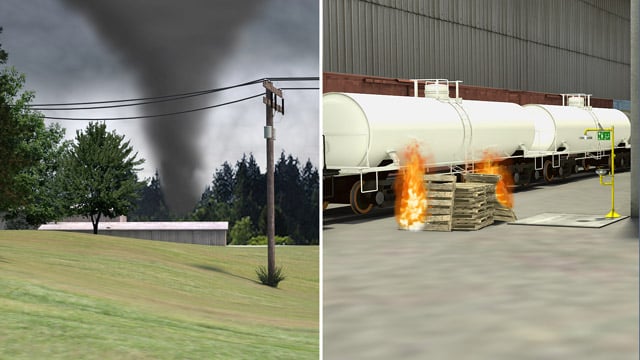
3. Environmental Control Training
Building maintenance training in environmental control focuses on maintaining optimal temperature and humidity levels for occupant comfort and asset preservation. Facility managers undergo comprehensive training to manage HVAC systems, refrigeration, and condensation control effectively.
HVAC Systems Management
HVAC systems management training covers system operation, maintenance best practices, and troubleshooting techniques. Facility managers learn to optimize system performance, ensuring consistent indoor climate conditions.
Refrigeration Maintenance
Refrigeration maintenance training emphasizes compressor maintenance, temperature monitoring, and preventive measures. By preserving perishable goods, facility managers safeguard occupant health and minimize financial losses.
Refrigeration - System Troubleshooting Course
This course will cover common issues in refrigeration systems and how to perform routine maintenance
View Course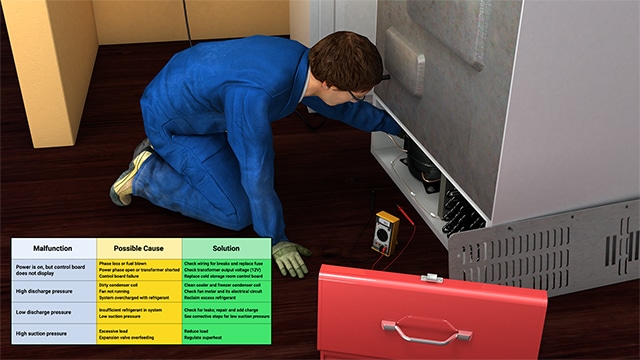
Condensation Control
Condensation control training addresses condensate removal systems, inspection procedures, and mitigation strategies. By preventing water damage and mold growth, facility managers maintain a healthy indoor environment.
4. Utility Management Training
Utility management training ensures reliable service delivery and safeguards building functionality. Facility managers learn to manage electrical systems, water/wastewater systems, and lighting to maintain operational efficiency.
Electrical Safety
Electrical safety training covers safety protocols, inspection techniques, and emergency response procedures. By prioritizing electrical safety, facility managers minimize the risk of hazards and ensure uninterrupted service delivery.
Water/Wastewater Management
Water/wastewater management training addresses water quality testing, maintenance practices, and regulatory compliance. Facility managers learn to maintain hygiene standards and protect public health through effective water management.
Lighting Systems Maintenance
Lighting systems maintenance training focuses on system maintenance, energy efficiency strategies, and emergency lighting requirements. By ensuring functional lighting, facility managers enhance occupant comfort and safety.
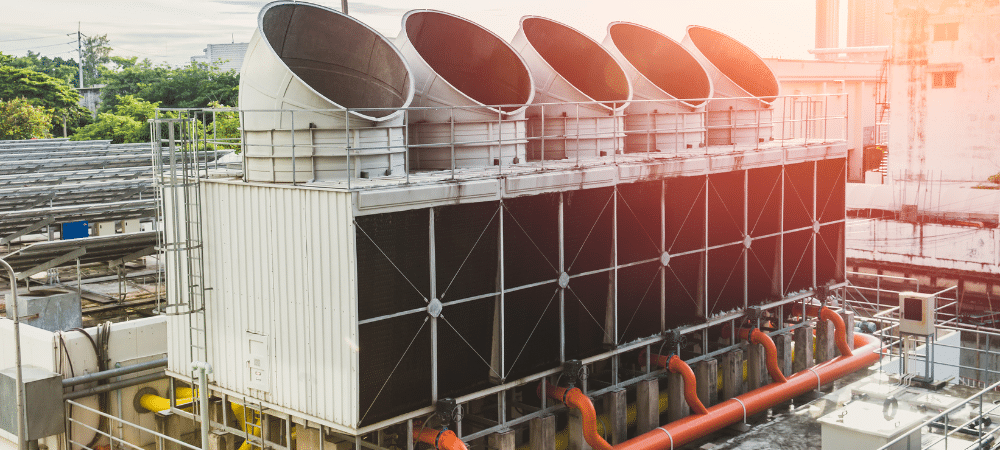
5. Building Automation Training
Building maintenance training in building automation systems (BAS) equips facility managers with the skills to leverage automation technology effectively while maintaining cybersecurity measures. Managers learn to optimize system performance and enhance operational efficiency.
Building Automation Systems (BAS) Operations Course
This course covers the fundamentals of automation equipment and explain how the BAS can assist the user in identifying problems and possible solutions
View Course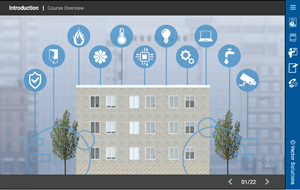
Automation Integration
Automation integration training covers the integration of building automation systems with existing infrastructure. Facility managers learn to troubleshoot issues, mitigate cybersecurity risks, and optimize system performance.
Investing in Building Maintenance Training
Effective building maintenance requires ongoing training and skill development. By prioritizing building maintenance training in structural integrity, life safety, environmental control, utility management, and automation integration, facility managers can ensure optimal building performance and occupant satisfaction.
Vector Solutions is an industry leader in building maintenance training. Ensure your facilities maintenance technicians and building engineers have the technical skills they need to effectively maintain building integrity, enhance occupant safety, and preserve property value.
Interested in learning more about Vector Solutions’ training and safety management solutions? Request a demo today to see them in action.
The Power of Online Maintenance Training Guide
Download our guide to uncover the impacts on hiring, skills development, performance and productivity
Download Guide